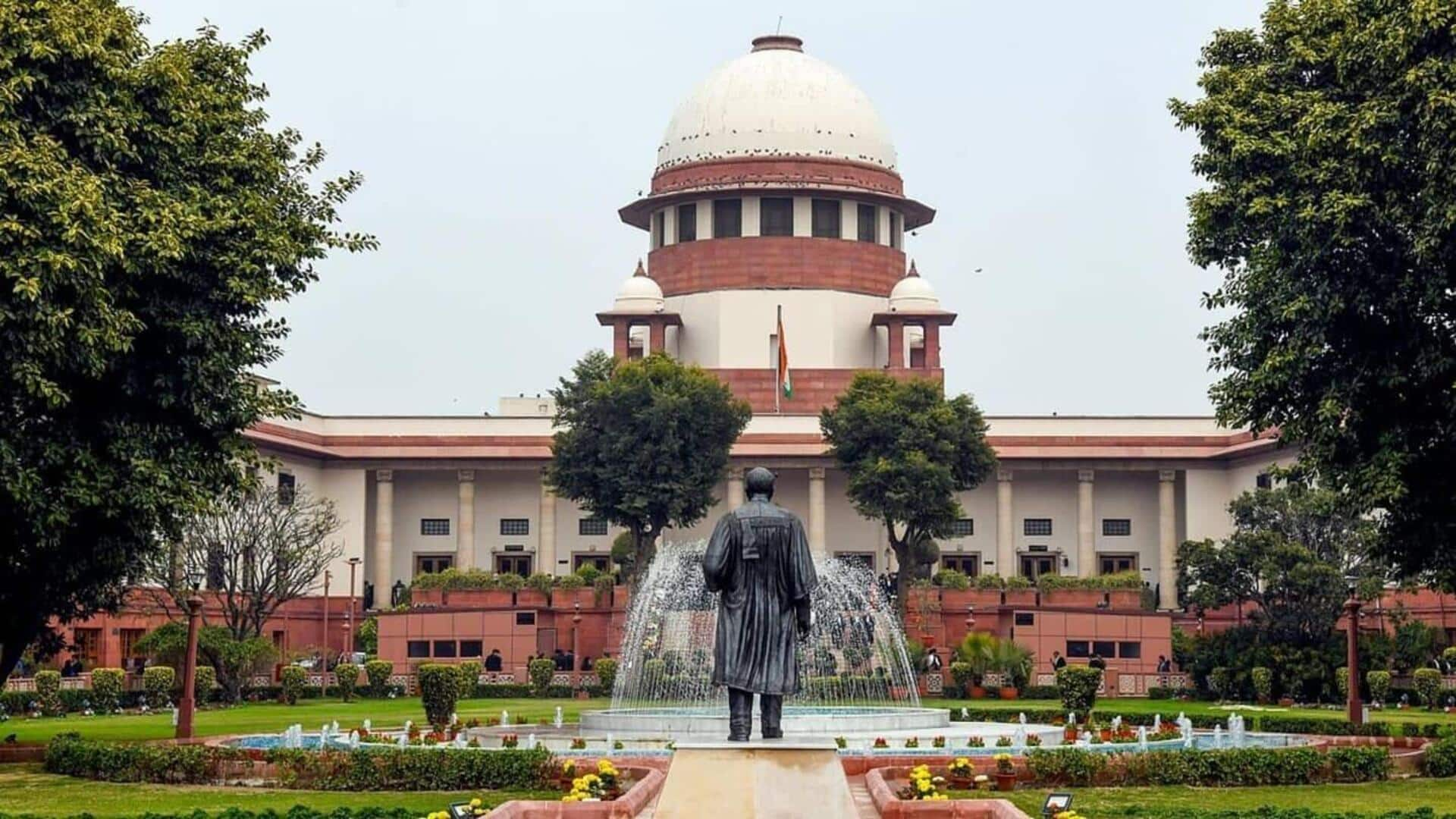
SC issues notice to states on pleas challenging anti-conversion laws
What's the story
The Supreme Court has issued notices to several states on petitions challenging anti-conversion laws. The bench, headed by Chief Justice of India BR Gavai and Justice K Vinod Chandra, has given states four weeks to respond. The states include Uttar Pradesh, Madhya Pradesh, Himachal Pradesh, Uttarakhand, Chhattisgarh, Gujarat, Haryana, Jharkhand, and Karnataka. The next hearing in this matter will be held in six weeks.
Legal arguments
Tool to harass inter-religion couples, say petitioners
The petitioners, including Jamiat Ulema-e-Hind and Citizens for Justice and Peace, claim these laws are misused to harass interreligious couples and curb religious practices. The petitioners have argued that the anti-conversion laws have become a tool to harass couples of different religions. They said, "Under their guise, anyone can be falsely accused of conversion." Senior advocate Chander Uday Singh, appearing for CJP, sought an urgent hearing and pointed out that some states have made their laws harsher.
Court directive
Court will consider whether to stay the operation
After receiving the responses, the court will consider whether to stay the operation of these laws. Advocate Vrinda Grover, representing the National Federation of Indian Women, also argued that the laws disproportionately affect women and minorities. The petitioners have pointed out that parts of these laws have already been stayed by the Gujarat and Madhya Pradesh High Courts. The high courts had moved the Supreme Court against these interim stays, and the matters are now part of the present batch.
Long-standing issue
Challenge to anti-conversion laws pending since January 2020
The challenge to these laws has been pending since January 2020, when a bench headed by then CJI DY Chandrachud issued notice in the matter. Jamiat Ulama-i-Hind had sought transfer of 21 petitions from six high courts to ensure uniformity in decisions. The petitioners argue that while state governments support these laws as protective measures, they question whether such legislation can withstand constitutional scrutiny given their nature of criminalizing conversion through marriage and shifting the burden of proof onto individuals.